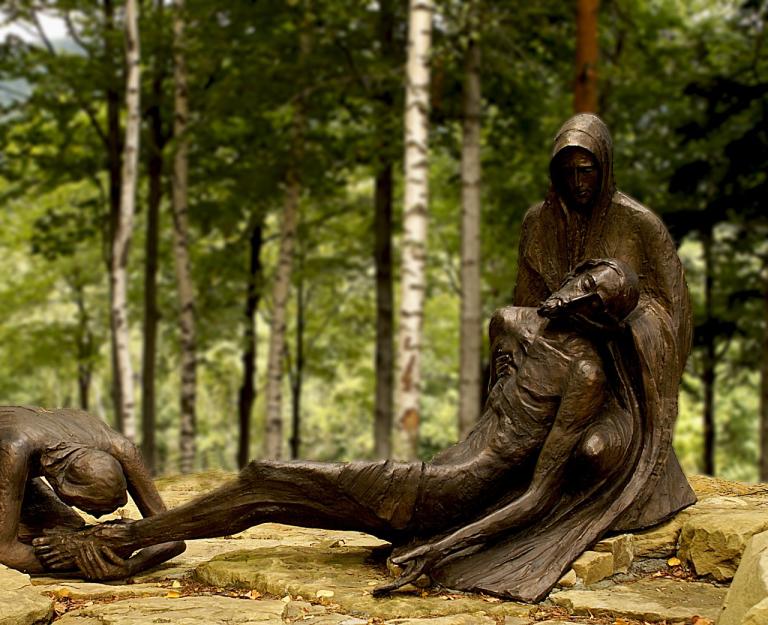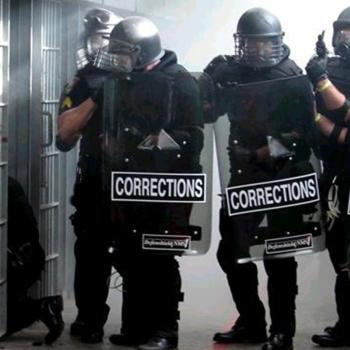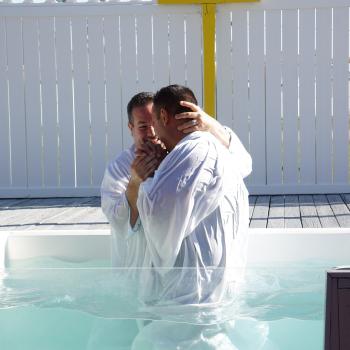So Crisis Magazine published two articles yesterday about the Pope’s apology. Who’s surprised? Well, to be honest, I really only expected there to be one. The one I expected is that one by John Henry Westen, “The Pope is Right for the Wrong Reasons.” It’s about how, really, what the Pope should have apologized to gay people for is for the failure of the Church to clearly and forcefully articulate its moral teaching about the grave depravity of homosexual acts.
Ummmmm… Okay. So here’s the thing: when I was a teenage atheist, raised in a liberal Anglican denomination, literally the only thing I knew about the Catholic Church’s teaching was that they were against gay sex and abortion. Couldn’t have told you about the doctrine of the Real Presence, or anything about Mary, or the social teaching of the Church, or Papal infallibility. I didn’t know that Catholics were not allowed to cohabit before marriage, or that divorce and remarriage was prohibited. But I did know that Catholics taught that gay sex was immoral.
The only time I have ever been told, from the pulpit, to write to my Member of Parliament, it was in opposition to same-sex marriage. Right now, Canada is in the process of legalizing medically assisted suicide — and I haven’t heard it mentioned in a sermon. There was a petition that you could sign in the back of the Church, but it did not get the same kind of attention that gay marriage did. And this is in Canada. Everything that I have heard from my LGBTQ friends in the US suggests that anti-gay sermons are actually significantly more popular south of the border.
I have heard zero sermons preached about environmental responsibility or domestic abuse. No sermons about the evils of charging excessive interest. Nothing about divorce. Once I heard a disedifyingly harsh sermon about contraception, but that was at the most conservative parish in Toronto. I haven’t heard the Church’s teaching on slander and rash judgement expounded, in spite of the fact that in the age of the internet these sins have become so rampant that they are practically ubiquitous. Pre-marital sex gets an occasional, somewhat bashful mention. Pornography is sometimes mentioned, usually in a “look, guys, I know y’all are doing this…and you know you shouldn’t…so maybe consider at least cutting it out for advent…” kind of way.
Given that only about 3% of the population are even routinely inclined to engage in same-sex sexual behaviour, I have heard this particular teaching expounded way, way more often than is proportionate. And unlike other sexual sins, which are generally treated with a kind of knowing sigh, this one gets roundly and clearly condemned in a way that makes gay people feel singled out, shamed and unwelcome.
There is a word for this. When you become obsessively focused on a single fault that is committed by other people. When you harp on it, to the exclusion of other issues. When this one sin alone graces the front page of your publication day after day after day. When you repeat the same tired refrain “objectively disordered,” “mortal sin,” “intrinsically evil,” “unnatural acts,” “sodomy,” “depravity,” “grave immorality,” with all the dreary monotony of a clanging gong. That words is nagging. Nagging is not calling people to repent. It’s not telling the truth in love. And it is not an effective way to preach the gospel. It’s just a way of establishing, always, always, always that you are in the right and the other person is in the wrong, and that they’d best not forget for even a minute how much better you are than them.
This kind of sanctimonious asshattery is exactly what Francis suggested we need to apologize for — and until those who are guilty of it stop making excuses for their bad behaviour and start actually repenting, we will continue to get the kind of hard-hearted response that we’re seeing today from many in the gay community.
There is a rhythm to repentance, and it never begins with the Bad Nasty Evil Bad Sinner is badgered into admitting that he is Wrong About Everything, and then offers unilateral apologies to the Good Long-Suffering Holy Older Brother. In salvation history, Christ first pours out His blood in order to reconcile us to God, and then offers the completed reconciliation to us to either accept or reject. He first shows His love, and then asks for repentance. Not the other way around.
The reason for this is straightforward: “Christianity is not a type of moralism, simply a system of ethics. It does not originate in our action, our moral capacity. Christianity is first and foremost a gift: God gives himself to us – he does not give something, but himself. And this does not only happen at the beginning, at the moment of our conversion. He constantly remains the One who gives. He continually offers us his gifts. He always precedes us. This is why the central act of Christian being is the Eucharist: gratitude for having been gratified, joy for the new life that he gives us.” (Benedict XVI)
True repentance is not possible without the profound gift of self that incorporates a person into Christ. We are first welcomed and called, and then the process of healing begins. Even then, the call to healing takes the form of a continual procession of gifts: a hand extended to help us move forward, rather than a scolding lash that repeatedly mocks us with our imperfections.
This means that we have to start by offering something of substance to the gay community. Not just to the good little homosexuals who are willing to call themselves SSA in order to evade the conservative hatred of all things gay. Not even just to the good little gays who are practicing celibacy or mixed-orientation marriage. I mean that we have to offer the riches of Christian love, community, welcome, embrace and accompaniment to those who reject the teaching — recognizing that moral growth is an effect of Christ’s love, not a precondition for receiving it.
Now, in the case of Christ it was not necessary for Him to offer apologies because He had not brought about our alienation from Him. And yet, in the Crucifixion, we see that even a sinless God was willing to endure all of the anger and hatred and resentment that human beings wanted to inflict on Him — and that He was willing to take this even to the point of torture and death in order to secure reconciliation with us. God gave us everything, and did nothing wrong, and yet He was willing to do literally everything humanly and divinely possible to make peace with us.
And what does His vicar ask us to do? Apologize. Not pour out groans like water. Not to sweat blood. Not to suffer to the utmost extremity of human endurance and beyond. He asks us to say, “Uh, look. I realize that actually we’ve treated you guys like crap. We’ve gone on and on about what we think you’re doing wrong, and even though we’ve admitted that actually we’re supposed to also recognize when we’re the ones in the wrong, the truth is we haven’t really done so well at that. Which is a scandal…and we’re really sorry.”
He asks us to behave like Christ, just a little teeny-tiny bit, by being the first to make an offer of reconciliation. A real one. Not one that is laced with sote voce condemnations, but one that expresses actual humility and contrition for the part that we have played in making war against our LGBTQ neighbour instead of making peace.
Image credit: pixabay
Stay in touch! Like Catholic Authenticity on Facebook:

















